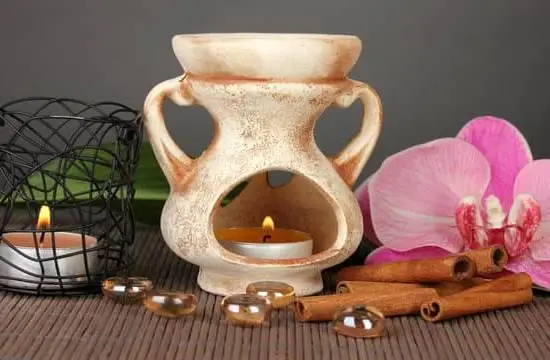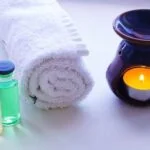Aromatherapy has gained immense popularity in recent years, with more and more people seeking natural alternatives for their health and wellness needs. If you have a passion for essential oils and their therapeutic benefits, starting an aromatherapy business can be a fulfilling and lucrative venture.
In this comprehensive guide, we will take you through the step-by-step process of starting your own aromatherapy business. From understanding the basics of aromatherapy to crafting a solid business plan, sourcing high-quality essential oils, creating a unique brand identity, complying with regulations, building an effective online presence, establishing strong distribution channels, nurturing customer relationships, and expanding your product range – we cover it all.
The world of aromatherapy offers endless opportunities for growth and success. With proper research, planning, and execution, you can tap into the growing demand for natural wellness solutions and carve out your niche in this thriving industry. So if you are ready to explore the lucrativeness of aromatherapy and embark on a journey to launch your profitable business, let’s dive in.
Understanding the Basics
Aromatherapy is a holistic healing practice that uses natural plant extracts, typically in the form of essential oils, to promote physical and emotional well-being. These essential oils are derived from various parts of plants such as leaves, flowers, bark, or seeds. Each essential oil possesses unique therapeutic properties and aromatic compounds that can be used for a range of purposes including relaxation, stress relief, pain management, and mood enhancement.
The popularity of aromatherapy has been steadily growing in recent years as people seek alternative methods to support their health and well-being. This increasing demand creates a thriving industry for those interested in starting an aromatherapy business. There are several compelling reasons why entrepreneurs should consider entering this market:
- Health and Wellness Trend: In today’s fast-paced and stressful world, more individuals are prioritizing self-care and seeking natural solutions to improve their overall well-being. Aromatherapy provides a safe and non-invasive approach to address common health concerns and enhance relaxation.
- Multiple Income Streams: The versatility of aromatherapy allows entrepreneurs to create various income streams within their business. Besides selling essential oils, you can offer services such as customized blends, consultations, workshops, or even create your own line of natural skincare products.
- Flexibility and Low Start-Up Costs: Starting an aromatherapy business can be relatively cost-effective compared to other industries. You have the flexibility to choose your business model – whether it’s operating online, from a physical location like a spa or wellness center or through direct sales.
To successfully enter the aromatherapy industry and stand out among competitors, it is important to thoroughly understand the basics of this practice. This includes knowledge on the different types of essential oils, their properties and benefits, as well as an understanding of proper usage guidelines and safety precautions. Additionally, having a passion for natural remedies and holistic healing will contribute to your success in this field.
By offering high-quality products and services, showcasing your expertise, and effectively communicating the benefits of aromatherapy to your target market, you can build a successful business while making a positive impact on the well-being of others.
Researching the Market
Before starting any business, it is essential to conduct thorough market research to understand the demand for your products or services. In the case of an aromatherapy business, this research becomes even more crucial as it helps you identify your niche and target audience within the industry.
To begin your market research, you can start by analyzing the overall growth and trends in the aromatherapy industry. According to a report by Grand View Research, the global aromatherapy market size was valued at USD 1.3 billion in 2019 and is expected to expand at a compound annual growth rate (CAGR) of 7.6% from 2020 to 2027.
Furthermore, consider studying market segments such as wellness tourism, spa industry, beauty and personal care products, alternative medicine practices, and natural health products. These sectors often have a significant overlap with aromatherapy and can provide insights into potential target markets for your business.
Once you have an understanding of the overall industry landscape, it’s important to find your niche within the aromatherapy market. This involves identifying specific customer segments or product categories that are underserved or have untapped potential.
For example, you may choose to focus on creating specialized aromatherapy products for specific demographic groups like pregnant women, infants, or elderly individuals. Alternatively, you could develop a unique line of aromatherapy products that cater to specific therapeutic purposes such as stress relief, sleep improvement, or mood enhancement.
By finding your niche in the market, not only can you differentiate yourself from competitors but also build a loyal customer base who resonate with your unique offerings. Remember that conducting continuous market research will allow you to adapt and evolve your business strategy based on changing consumer preferences and emerging trends.
| Market Research Insights | Data |
|---|---|
| Global aromatherapy market size (2019) | USD 1.3 billion |
| Expected CAGR of the aromatherapy market (2020-2027) | 7.6% |
Crafting a Solid Business Plan
When starting any business, it is crucial to have a well-thought-out and comprehensive business plan in place. This is especially true for an aromatherapy business, where the market can be competitive and successful ventures require careful planning. In this section, we will provide you with a step-by-step guide on how to craft a solid business plan for your aromatherapy business.
- Define Your Vision and Mission Statement: Begin by articulating your long-term vision for your aromatherapy business. What do you hope to achieve? Who are your target customers? How do you want your products to be perceived in the market? Once you have clarity on your vision, create a mission statement that summarizes the purpose of your business and its core values.
- Conduct Market Research: Before launching your aromatherapy business, it’s essential to understand the market landscape. Research existing competitors, analyze their strengths and weaknesses, and identify any gaps or untapped opportunities in the market. This research will help you position your business effectively and develop strategies to stand out from the competition.
- Determine Your Product Range: Decide on the specific aroma products you will offer based on customer demand and industry trends. Consider offering a diverse range of essential oils, blends, candles, soaps, or bath products that align with your target audience’s preferences. Additionally, think about any unique product offerings that could set your brand apart from others in the market.
- Develop a Marketing Strategy: Outline how you will promote and sell your aromatherapy products. Consider both traditional marketing methods (such as print ads or collaborations with local businesses) and digital marketing strategies (such as social media advertising or influencer partnerships). Determine which channels best resonate with your target audience and allocate appropriate resources towards them.
- Financial Planning: It is crucial to have a clear understanding of your financials when starting an aromatherapy business. Identify your start-up costs, ongoing operational expenses, and projected sales figures. Consider seeking advice from a financial professional to help create a realistic budget and forecast potential revenue streams.
By following this step-by-step guide to crafting a solid business plan, you will give yourself a strong foundation for launching and growing your profitable aromatherapy business. Your business plan will serve as a roadmap, helping you make informed decisions and navigate the challenges of the market effectively. Remember to regularly review and update your plan as your business evolves and expands in the future.
Sourcing High-Quality Essential Oils and Raw Materials
Finding reliable and high-quality suppliers for your aromatherapy business is crucial for the success of your products. In this section, we will explore different avenues to source the best essential oils and raw materials for your aromatherapy products.
- Local Suppliers: A great place to start is by researching local suppliers in your area who offer essential oils and raw materials for aromatherapy. Visit local farmers markets, health food stores, or herbal shops that may carry a selection of these products. Build relationships with these suppliers and inquire about their sourcing methods to ensure they align with your standards of quality.
- Online Platforms: The internet provides a vast array of options when it comes to sourcing suppliers for your aromatherapy business. Online platforms such as Alibaba, Essential Depot, and Plant Therapy offer a wide range of essential oils and raw materials from different parts of the world. Research each supplier thoroughly by reading customer reviews and ratings before making any purchases.
- Trade Shows and Conferences: Attending trade shows and conferences related to aromatherapy can be an excellent opportunity to connect directly with suppliers. These events often have exhibitors showcasing their products, providing you with a chance to sample their offerings and ask questions about sourcing practices.
- Direct from Growers: Consider establishing direct relationships with growers who specialize in cultivating aromatic plants used in aromatherapy. This approach allows you to have more control over the quality of the materials used in your products while also supporting sustainable farming practices.
- Certification Programs: Look for suppliers that have certifications ensuring the quality and purity of their essential oils. Certifications like organic, wildcrafted, or fair trade can give you peace of mind knowing that the supplier adheres to certain ethical standards in their sourcing process.
When choosing suppliers, it’s important to not only focus on the quality but also consider factors such as pricing, reliability, availability of stock, and shipping times. It’s advisable to build relationships with multiple suppliers to prevent any disruptions in your supply chain. Regularly evaluate your suppliers and make adjustments as needed to maintain the highest quality standards for your aromatherapy products.
Creating an Appealing Brand and Unique Selling Proposition
In the competitive world of aromatherapy, it is crucial to have a strong brand and unique selling proposition (USP) in order to stand out from the crowd. Your brand represents your business’s personality, values, and mission, while your USP sets you apart by highlighting what makes your products or services unique and valuable to customers. Here are some key factors to consider when establishing your identity in the aromatherapy market.
Choosing a Memorable Brand Name
One of the first steps in creating an appealing brand is choosing a memorable name that reflects your business and resonates with customers. It should be easy to pronounce, spell, and remember. Consider using words that evoke positive emotions or portray the benefits of aromatherapy.
Designing a Captivating Logo
A well-designed logo can make a big impact on your brand’s visibility and recognition. It should be visually appealing, memorable, and reflect the essence of your aromatherapy business. Use colors, fonts, and imagery that align with your brand identity. For example, earthy tones and natural elements may be suitable for businesses focused on organic or holistic approaches.
Crafting a Compelling Brand Story
An effective way to connect with your target audience is through storytelling. Craft a compelling brand story that communicates why you started your aromatherapy business, what inspired you, and how your products or services can improve customers’ lives. Your story should create an emotional connection with potential customers while reinforcing the value of your offerings.
Developing Your Unique Selling Proposition
Your unique selling proposition (USP) is what distinguishes you from competitors in the market. Identify what sets your products or services apart from others in terms of quality, benefits, ingredients used, or special features. Highlight these unique aspects in all aspects of your marketing materials to attract customers looking for something different.
Creating an appealing brand and unique selling proposition is crucial for establishing your identity in the competitive aromatherapy market. By choosing a memorable brand name, designing a captivating logo, crafting a compelling brand story, and developing a unique selling proposition, you will be able to effectively differentiate yourself from competitors and attract customers who resonate with your values and offerings.
Complying with Regulations and Obtaining the Necessary Certifications
When starting an aromatherapy business, it is crucial to understand and comply with the regulations set forth by governing bodies to ensure the legitimacy and safety of your products. By obtaining the necessary certifications, you not only establish yourself as a professional in the industry but also gain the trust of customers who are concerned about quality and safety.
Understanding Regulatory Bodies
The first step in ensuring compliance is to familiarize yourself with the regulatory bodies that oversee aromatherapy products. In many countries, essential oils and aromatherapy products fall under either cosmetic regulations or standards set by health agencies. It is important to research and understand the specific requirements for your target market.
Obtaining Certifications
Once you have a clear understanding of the regulatory landscape, you can begin obtaining the necessary certifications for your aromatherapy business. This may include certifications such as Good Manufacturing Practice (GMP), which ensures that your products are produced consistently and meet quality standards. Additionally, you may need to obtain specific certifications for organic or natural products, especially if you want to cater to customers who prioritize these aspects.
It is advisable to consult with professionals who specialize in regulatory compliance for guidance on which certifications are most relevant to your business. They can provide valuable insights on navigating through complex requirements and help you ensure that every aspect of your business meets the necessary standards.
Ensuring Product Safety
Apart from complying with regulations, ensuring product safety should be a top priority for any aromatherapy business. This involves rigorous testing of essential oils and other raw materials used in your products. Testing should cover aspects such as purity, potency, and potential contaminants to guarantee that your customers receive safe and high-quality products.
In addition to testing raw materials, it is crucial to adhere to proper manufacturing practices. This includes maintaining strict hygiene standards, implementing proper labeling and packaging protocols, and conducting regular product testing and quality control.
By prioritizing compliance with regulations and obtaining the necessary certifications, you can establish your aromatherapy business as a trusted and reputable brand in the market. Ensuring the safety of your products not only protects your customers but also contributes to the long-term success and growth of your business.
Building an Effective Online Presence
In today’s digital age, having a strong online presence is essential for any business, including aromatherapy. With the power of digital marketing, you can effectively promote and sell your aromatherapy products to a wider audience, increase brand awareness, and drive more sales. Here are some key strategies to build an effective online presence for your aromatherapy business.
First and foremost, it is crucial to have a well-designed and user-friendly website. Your website will serve as your online storefront where potential customers can learn about your products, make purchases, and contact you. Ensure that your website is visually appealing, provides detailed information about your products, and has a straightforward checkout process. Optimize your website for search engines by including relevant keywords in your content and meta tags to improve visibility on search engine results pages.
Another important aspect of building an online presence is utilizing social media platforms. Social media allows you to connect with your target audience directly and engage with them on a personal level. Create accounts on popular platforms such as Facebook, Instagram, and Twitter, and regularly post high-quality content that educates, inspires, or entertains your audience. Use hashtags related to aromatherapy to reach potential customers who are interested in this niche.
Email marketing is also an effective tool for promoting and selling your aromatherapy products online. Build an email list by offering exclusive promotions or free resources in exchange for visitors’ email addresses on your website. Send regular newsletters or emails that provide valuable content such as product updates, educational articles about essential oils, or special discounts to keep subscribers engaged and interested in your brand.
To further enhance your online presence, consider partnering with influencers or bloggers who share similar interests or values with your brand. Collaborating with influencers will help you reach a larger audience within the aromatherapy community and gain credibility through their recommendations.
Building an effective online presence is an ongoing process that requires continuous effort and adaptation to changing digital trends. Stay updated with the latest digital marketing strategies, monitor your online performance through analytics, and adjust your tactics accordingly to ensure the success of your aromatherapy business in the digital world.
| Strategy | Description |
|---|---|
| Optimize Website | Create a visually appealing website that is optimized for search engines. |
| Utilize Social Media | Create accounts on popular social media platforms and regularly post engaging content. |
| Email Marketing | Build an email list and send regular newsletters or emails to engage subscribers. |
| Influencer Partnerships | Collaborate with influencers or bloggers to reach a larger audience within the aromatherapy community. |
Establishing a Strong Distribution Network
Expanding reach through retailers, spas, and wellness centres
Once your aromatherapy business is up and running, it’s time to focus on expanding your reach and establishing a strong distribution network. Collaborating with retailers, spas, and wellness centres can not only increase the visibility of your brand but also provide opportunities for reaching a wider customer base. Here are some strategies to consider when establishing a strong distribution network for your aromatherapy products.
Identify Potential Partners
Begin by identifying potential partners that align with your target market and brand values. Look for retailers, spas, and wellness centres that have a high demand for natural and holistic products. Research their offerings, customer base, and reputation to ensure they are a good fit for your aromatherapy business.
Reach Out and Build Relationships
Reach out to these potential partners through networking events or online platforms. Introduce yourself and your brand, expressing your interest in collaborating with them. Offer samples or testers of your products so they can experience the quality firsthand. Building genuine relationships with these establishments will help establish trust and open doors for future collaborations.
Wholesale and Consignment Options
Consider offering wholesale or consignment options to retailers, spas, and wellness centres. Wholesale allows you to sell larger quantities of products at reduced prices to the establishment, while consignment involves placing your products in-store without upfront payment; you receive payment only when the items are sold. Both options can be mutually beneficial as they allow the partner businesses to offer a wider range of aromatherapy products while increasing exposure for your brand.
Provide Support and Training
To ensure success within the distribution network, provide ongoing support to your partners by offering product training sessions or informational materials about the benefits of aromatherapy. This will equip their staff with knowledge about your products, enabling them to provide accurate and engaging information to potential customers. Regular communication and support will help maintain strong relationships and ensure your products are being effectively promoted.
Evaluate and Expand
Regularly evaluate the performance of your distribution partners. Monitor sales, customer feedback, and the effectiveness of their marketing efforts. If a partnership is not meeting expectations, it may be necessary to reassess or terminate the collaboration. On the other hand, successful partnerships can lead to opportunities for expansion. Consider approaching other businesses in similar industries or geographical areas to further expand your distribution network.
By establishing a strong distribution network through collaborations with retailers, spas, and wellness centres, you can significantly increase the reach of your aromatherapy business. These partnerships provide avenues for reaching a wider customer base while also enhancing credibility and exposure for your brand. By implementing these strategies, you can create mutually beneficial relationships that contribute to the growth and success of your aromatherapy business.
Nurturing Customer Relations and Generating Repeat Business
One of the keys to success in any business is building strong relationships with your customers and generating repeat business. In the aromatherapy industry, this is particularly important as loyal and satisfied customers can become advocates for your brand, helping to spread the word and attract new customers. Here are some effective strategies for engaging and retaining aromatherapy enthusiasts:
- Provide Exceptional Customer Service: One way to nurture customer relations is by offering exceptional customer service. Respond promptly to inquiries, address any concerns or issues, and go above and beyond to ensure your customers feel valued and heard. Consider offering personalized recommendations based on their preferences or providing educational resources to help them make informed choices.
- Create a Loyalty Program: Implementing a loyalty program can be an effective way to encourage repeat business. Offer incentives such as discounts, exclusive offers, or free gifts for frequent purchases or referrals. This will not only increase customer retention but also incentivize them to recommend your products to others.
- Stay Connected Through Email Marketing: Build an email list of your aromatherapy enthusiasts and regularly send out newsletters or updates about new products, promotions, or relevant information related to aromatherapy. Use email marketing as a way to stay connected with your audience, deliver valuable content, and remind them of your brand.
- Engage on Social Media: Utilize social media platforms such as Instagram, Facebook, or Pinterest to engage with your audience on a daily basis. Share educational content about essential oils and their benefits, behind-the-scenes glimpses into your business processes, testimonials from satisfied customers, and interactive posts that encourage engagement (such as polls or quizzes).
Evolving and Expanding
One of the keys to long-term success in the aromatherapy industry is continuously evolving and expanding your product range. While starting with a few core products can be a great way to establish your brand, diversifying your offerings can help you reach a wider customer base and cater to different needs and preferences. By introducing new products and innovations, you can demonstrate your expertise and stay ahead of the competition.
There are several ways you can diversify your product range in the aromatherapy industry. One option is to develop new scents or blends that offer unique benefits or target specific concerns.
Conduct market research to identify emerging trends and unmet needs in the industry, and use this information to create innovative products that fill these gaps. For example, if there is a growing demand for relaxation products, you could develop a new line of calming essential oil blends or bath salts infused with therapeutic fragrances.
In addition to creating new products, consider expanding into related categories within the wellness industry. Aromatherapy can synergize well with other holistic practices such as massage therapy, skincare, or meditation. You might consider partnering with practitioners in these fields to develop collaborative product lines or packages that offer a complete wellness experience. This not only expands your product range but also allows you to tap into existing customer bases and leverage each other’s strengths.
By regularly innovating in the aromatherapy industry, you can position yourself as an authority and attract customers who crave novelty and excitement. Stay updated on the latest scientific research regarding essential oils and their benefits, as this knowledge can help inspire new product ideas. Experiment with different formulations, packaging designs, or delivery methods to stand out from competitors.
Remember that evolving and expanding should be done strategically – it’s important not to dilute your brand or confuse customers by offering too many unrelated products. Keep your core values and target audience in mind when developing new additions to your product range. With careful planning and innovation, diversifying your offerings can help you grow your aromatherapy business and stay relevant in a competitive market.
Conclusion
In conclusion, starting and growing a profitable aromatherapy business requires careful planning, research, and dedication. By following the steps outlined in this guide, you can embark on your journey to success in the thriving aromatherapy industry.
First and foremost, understanding the basics of aromatherapy and why you want to start a business in this industry is crucial. Aromatherapy offers numerous benefits for physical and mental well-being, and with the increasing demand for natural products, it presents a lucrative opportunity for entrepreneurs. As you research the market and find your niche, it is important to analyze the demand for specific products or services and identify what sets you apart from competitors.
Crafting a solid business plan is an essential step in setting yourself up for success. Your business plan should include details such as your target market, marketing strategies, financial projections, and operational procedures. Additionally, sourcing high-quality essential oils and raw materials from reliable suppliers will ensure that your products are of premium quality.
Establishing an appealing brand and unique selling proposition is vital in standing out in the competitive aromatherapy market. Your brand identity should reflect your values and resonate with your target audience. Furthermore, complying with regulations and obtaining necessary certifications will ensure legitimacy and safety for your customers.
Building an effective online presence through digital marketing techniques such as social media marketing and search engine optimization will help promote your products to a wider audience. Collaborating with retailers, spas, and wellness centers will expand your distribution network significantly.
Once you have attracted customers to your business, nurturing customer relations becomes crucial for generating repeat business. Utilizing effective strategies such as personalized customer experiences, loyalty programs, and tailored promotions can engage clients and keep them coming back for more.
Finally, as you establish yourself in the market, consider diversifying your product range and innovating to stay ahead of competitors. Introducing new scents or expanding into related products can help sustain growth in the long run.
Overall, the journey to launching and growing a profitable aromatherapy business requires passion, perseverance, and continuous learning. By following the steps outlined in this guide, you can navigate the intricacies of the industry and build a successful enterprise that brings joy and well-being to customers around the world.
Frequently Asked Questions
How much does it cost to start an aromatherapy business?
The cost of starting an aromatherapy business can vary depending on various factors. Some common expenses include obtaining certifications or training, purchasing essential oils and other supplies, setting up a website or online presence, marketing and advertising costs, and potentially renting or leasing space for a physical location if desired.
Additionally, there may be ongoing expenses such as restocking supplies and continuing education to stay updated with new techniques and trends. It is essential to create a detailed business plan to estimate these costs accurately and determine the financial investment required to start an aromatherapy business.
Is there a demand for aromatherapists?
Yes, there is a demand for aromatherapists. Aromatherapy has gained popularity in recent years as more people seek holistic approaches to wellness and stress management. The demand for alternative therapies like aromatherapy has grown due to increased awareness of their potential benefits both physically and mentally.
Many individuals are looking for natural remedies, relaxation techniques, or complementary therapies that can support their overall well-being. Aromatherapists who offer specialized knowledge in essential oils and their therapeutic properties can find opportunities in various settings such as spas, wellness centers, healthcare facilities, or even starting their own private practice.
Can you make money as an aromatherapist?
It is possible to make money as an aromatherapist; however, the level of income may vary depending on factors such as location, experience, client base, entrepreneurial skills, and marketing efforts. Aromatherapists can generate income through various avenues including private consultations, selling essential oils or related products directly to clients or retail outlets, offering workshops or classes, providing services at wellness retreats or spa settings, writing books or articles on aromatherapy-related topics, and online platforms like e-commerce websites or virtual consultations.
Building a solid reputation within the field through quality services and effective marketing strategies can help increase income potential as an aromatherapist.

Are you looking for a natural way to improve your health and wellbeing?
If so, aromatherapy may be the answer for you.





